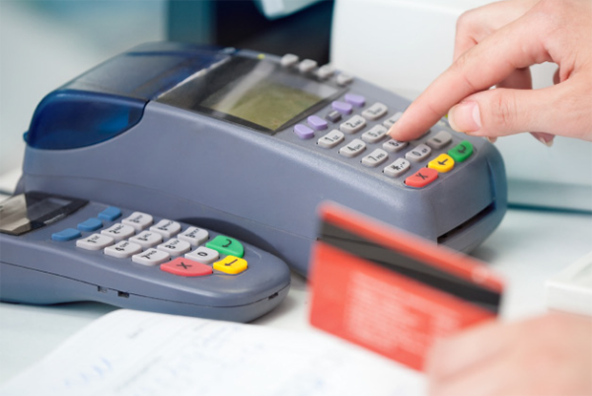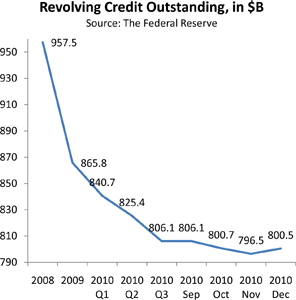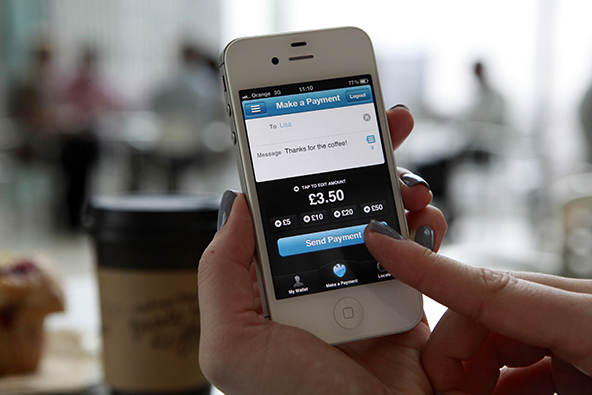Why Checkout Fees Are a Non-Issue

Much has been written about the part of last year’s $7.25 billion settlement of the antitrust case filed by a number of retail groups against Visa, MasterCard and more than a dozen of their member banks, which allowed merchants to place surcharges on credit card payments. The retailers were to receive $6.05 billion in cash and an estimated $1.2 billion in interchange fee reductions over an eight-month period, which the two card networks were supposed to spend modifying their merchant rules. The agreement followed a seven-year legal battle in which U.S. retailers accused the two largest credit card networks of conspiring with their card issuing banks to fix interchange fees.
Back when they announced the settlement, the merchants’ lawyers hailed it as a huge victory, even as it was plainly evident that it was nothing of the kind. Not only was the settlement amount too low, considering what was at stake, but more importantly, even as the merchants’ lawyers were claiming otherwise, it was quite obvious even at the time that the credit card interchange rates — the merchants’ biggest bogeyman — were safe. What remained to be seen was whether or not the retailers were going to make use of the only real concession they managed to secure — the ability to place surcharges on credit card transactions. And the answer is no, the merchants will not be charging us checkout fees anytime soon.
Fast Facts: Checkout Fees
This morning The Financial Services Roundtable is giving us the facts about the checkout fees, which I thought I’d share with you. Here is what we currently know:
FACT: Credit card companies charge store merchants an ‘interchange fee’ to accept their cards, usually 1.5% – 3% of the customer’s total purchase.
– In July of 2012, a settlement between retailers and card companies required Visa, MasterCard, and several banks to pay over $6 billion, reduce the processing fees for a period of eight months, and gave merchants the ability to charge checkout fees.
FACT: According to the Electronic Payments Coalition, as of January 27th, 2013, retailers can pass the processing fees they incur from credit card companies on to the customer, in the form of a ‘merchant surcharge’, or ‘checkout fee’.
– The fee does not apply to debit or prepaid cards.
FACT: Merchants cannot charge customers a surcharge larger than fee they face to accept the card.
– Merchants are allowed to offer discounts to customers wishing to pay in cash to avoid the fee, and may be able to negotiate interchange fees with the card companies.
FACT: All retailers must provide clear disclosure of their surcharge policies prior to the point of purchase.
– Proper disclosure includes signage in stores and online, and the exact amount of the fee must be printed on the customer’s receipt.
– Not all cards carry the same fees, so consumers are encouraged to ask about the checkout fees before choosing a payment plan.
– American Express does not allow surcharges to be passed to customers.
FACT: Checkout fees are illegal in ten states; California, Colorado, Connecticut, Florida, Kansas, Maine, Massachusetts, New York, Oklahoma, and Texas.
– Charging customers a checkout fee is not required, and retailers who choose not to will appear more competitive and consumer oriented.
– Although most retailers have not yet started charging a fee, those that offer highly specialized goods are most likely to adopt checkout fees first.
It should be added that a number of states are now considering joining the ten mentioned above in making the checkout fees illegal.
What’s New?
This checkout fee fight has always been a bit puzzling to me. See, Visa and MasterCard rules have always permitted merchants to offer discounts on non-card payments. In fact, here in Massachusetts, ever since I can remember we’ve had some gas stations, though a distinct minority, which have had two sets of prices: a lower one for cash payments and a higher one for card payments. I don’t know how well that pricing structure has worked for them, but the fact that it’s been utilized for decades tells me that perhaps it hasn’t been entirely unsuccessful. In any event, the point is that merchants have always had the opportunity to make card payments more expensive to their customers.
So the question becomes what is the difference between what the merchants could do before the settlement and what they can do now. Well, as far as I can tell, the new rules have led to no changes for consumers and have perhaps been detrimental to the merchants’ cause. On the first point, consumers are still not being charged any credit card surcharges and that is unlikely to ever happen, whether or not other states join the ten which have already banned the practice. On the second point, if the only real concession the merchants got out of the settlement — the ability to place surcharges on credit card transactions — is unlikely to ever be put in practice, what is in the agreement to offset the non-reduction of the interchange fees, which has always been the merchants’ primary objective?
The Takeaway
This settlement agreement has been an unmitigated disaster for the merchants involved in it and the most amazing thing about this debacle is just how poorly the retailers’ interests were represented by their lawyers in this case. Unsurprisingly, it only took a week after the lawyers hailed their “historic settlement” for the merchants to start figuring out that they were actually getting a pretty raw deal and demanding that the whole agreement be scrapped. My initial reaction was that the plaintiffs’ lawyers should be fired immediately, although it would have been too late for that to make any difference, but then I realized that the merchants had only themselves to blame for digging the hole they found themselves in. After all, the lawyers would not have set the terms of the agreement on their own, without consulting their clients. In any case, it is unlikely that consumers will ever have to pay any checkout fees and that is what really matters.
Image credit: Futurepos.com.



Not only are the banks racking in these fees, but some variety stores chage 10 cents for debit and cc transactions if you make a purchase under $10.00, or the amount they set. Come on, variety stores charge up to double for junk food, eg pop, chips etc, and purchase those products from grocery stores when the product is on sale. Sometimes the profit is 100%. I know I work in a grocery store.
WE forget that merchants were given almost unrestricted use of the information that comes with the customer using a credit card. They have been well remunerated.